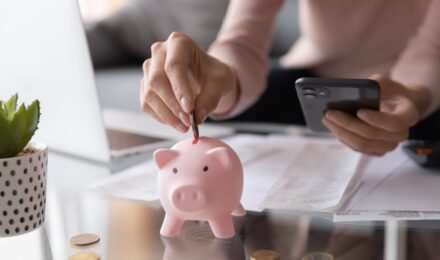If you’re reading this post then the overwhelming chances are that you or somebody close to you has a problem with spending too much. For many people shopping can relieve anxiety and reduce stress by allowing the person to refocus their energy on the task at hand, buying that thing you think you need. Unfortunately, when you use shopping as a coping mechanism you can quickly slip into bad habits of shopping for items you don’t need, or even want in many cases, and can begin to rack up significant bills. Buying things can be fun, and the act of shopping for something can be entertainment so long as you can keep your priorities in check. Those of us who have dealt with difficulties with overspending on shopping trips know how difficult it can be to find the boundaries between appropriate purchases and inappropriate purchases, and many of us have suffered through the sticker shock of our credit card bills at the end of the month. By following some of my tips below, I’m hoping to help you find some balance in your shopping habits and refocus your energy on saving money rather than spending it.
Figure out when and why you shop
Obviously you shop for items you need to survive, such as groceries, clothing for work, things for your children, but do you know when you’re shopping for things you actually need or are you creating a reason to head to the store or jump online? As I said above, for many people shopping becomes a coping mechanism for dealing with stress brought on from other emotions they’re feeling. Being ready to recognize your feelings before you are able to translate them into stress and start shopping is your first line of defense. The next time you feel a sudden urge to shop when you don’t actually need anything, think hard about how you feel. Are you angry, bored, sad, or stressed? When you feel these emotions you can say to yourself “whatever, I deserve this” and all of a sudden you’ve bought something you don’t need. These happen to be my emotions that typically end up with me starting to shop, but they may not be the same for you. Get out a pen and paper and write down the issues you were dealing with the last few times you went on a shopping spree. You should be able to see a pattern and pinpoint which emotions you need to be aware of so you can stop yourself before you shop and ask yourself what is really going on.
Do ANYTHING else but shop, and START to save
After you’ve figured out what your specific shopping triggers are then you can start to work on what to do to replace the urge to shop when these triggers happen. You may think you can just talk yourself out of the urge to shop but it’s much more difficult than you might think, so find ways to replace that urge to shop with another activity. Try going for a walk to clear your head a bit and work through what’s bothering you. You can vent to a friend or spouse about your feelings and you will likely feel the anxiety and stress you felt begin to ease. If you’re feeling depressed do some mental exercises to think about things in your life that are good, that you are grateful for, and that you are excited to do in the future.
The final step is to begin to save money instead of spending it on shopping trips. This step is a bit more difficult to work on, but with methodical planning and begin aware of your shopping triggers you can quickly begin a healthy savings habit. My first recommendation is to set up a direct debit from your checking account on each of your paydays that will pull 3% of your take home pay into a savings account. You might think that 3% doesn’t sound like much, and that’s the point. Once you save 3% you’ll realize that you don’t really need or miss that money and now it’s in a place earning interest and is available for big picture purchases. Once you’re comfortable with 3% you should boost it to 5%, then end up at 10%. Learning to live within your income at each of these savings levels will put your overall spending picture in perspective. The next step is to build a budget and set longer term goals for your money. Maybe you want to go to Bali for a yoga retreat, or you want to take your family to a theme park, or buy a new car or house. Set a goal that costs a good bit of money and save methodically towards it. The next time you feel anxious and have the urge to shop you can think about your goal and how shopping now will keep you further away from that goal.
If you’re reading this post then the overwhelming chances are that you or somebody close to you has a problem with spending too much. For many people shopping can relieve anxiety and reduce stress by allowing the person to refocus their energy on the task at hand, buying that thing you think you need. Unfortunately, when you use shopping as a coping mechanism you can quickly slip into bad habits of shopping for items you don’t need, or even want in many cases, and can begin to rack up significant bills. Buying things can be fun, and the act of shopping for something can be entertainment so long as you can keep your priorities in check. Those of us who have dealt with difficulties with overspending on shopping trips know how difficult it can be to find the boundaries between appropriate purchases and inappropriate purchases, and many of us have suffered through the sticker shock of our credit card bills at the end of the month. By following some of my tips below, I’m hoping to help you find some balance in your shopping habits and refocus your energy on saving money rather than spending it.
Figure out when and why you shop
Obviously you shop for items you need to survive, such as groceries, clothing for work, things for your children, but do you know when you’re shopping for things you actually need or are you creating a reason to head to the store or jump online? As I said above, for many people shopping becomes a coping mechanism for dealing with stress brought on from other emotions they’re feeling. Being ready to recognize your feelings before you are able to translate them into stress and start shopping is your first line of defense. The next time you feel a sudden urge to shop when you don’t actually need anything, think hard about how you feel. Are you angry, bored, sad, or stressed? When you feel these emotions you can say to yourself “whatever, I deserve this” and all of a sudden you’ve bought something you don’t need. These happen to be my emotions that typically end up with me starting to shop, but they may not be the same for you. Get out a pen and paper and write down the issues you were dealing with the last few times you went on a shopping spree. You should be able to see a pattern and pinpoint which emotions you need to be aware of so you can stop yourself before you shop and ask yourself what is really going on.
Do ANYTHING else but shop, and START to save
After you’ve figured out what your specific shopping triggers are then you can start to work on what to do to replace the urge to shop when these triggers happen. You may think you can just talk yourself out of the urge to shop but it’s much more difficult than you might think, so find ways to replace that urge to shop with another activity. Try going for a walk to clear your head a bit and work through what’s bothering you. You can vent to a friend or spouse about your feelings and you will likely feel the anxiety and stress you felt begin to ease. If you’re feeling depressed do some mental exercises to think about things in your life that are good, that you are grateful for, and that you are excited to do in the future.
The final step is to begin to save money instead of spending it on shopping trips. This step is a bit more difficult to work on, but with methodical planning and begin aware of your shopping triggers you can quickly begin a healthy savings habit. My first recommendation is to set up a direct debit from your checking account on each of your paydays that will pull 3% of your take home pay into a savings account. You might think that 3% doesn’t sound like much, and that’s the point. Once you save 3% you’ll realize that you don’t really need or miss that money and now it’s in a place earning interest and is available for big picture purchases. Once you’re comfortable with 3% you should boost it to 5%, then end up at 10%. Learning to live within your income at each of these savings levels will put your overall spending picture in perspective. The next step is to build a budget and set longer term goals for your money. Maybe you want to go to Bali for a yoga retreat, or you want to take your family to a theme park, or buy a new car or house. Set a goal that costs a good bit of money and save methodically towards it. The next time you feel anxious and have the urge to shop you can think about your goal and how shopping now will keep you further away from that goal.






